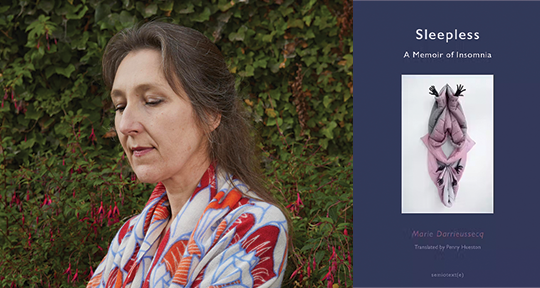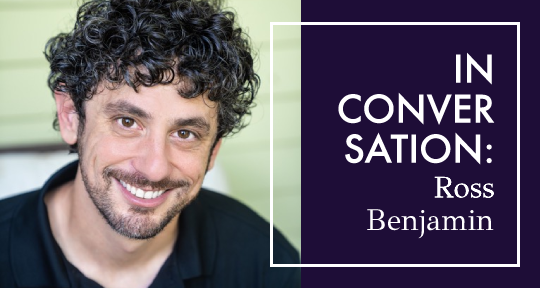Sleepless by Marie Darrieussecq, translated from the French by Penny Hueston, Semiotext(e), 2023
While writing this review, I began making a list of everything I’ve tried in my attempts to fall asleep. The first was reading, which didn’t help me fall asleep at all (though not sleeping has helped immensely with reading). The second, which I tried after the first time I told a doctor about my trouble sleeping at age eleven, was melatonin, and I took it dutifully, in varying doses, until stopping cold a year ago. I sleep no better and no worse since. Over the years, I have also tried: valerian root, passionflower, marijuana, CBD gel, NyQuil, keeping my phone in another room, counting sheep, white noise, earplugs, Xanax, watching the same six television shows over and over again, an eye mask, new sheets, exercise, an early and consistent alarm. I have a prescription for trazadone but don’t take it (the benefits of simply being in possession of sleeping pills are often extolled to insomniacs, though I haven’t noticed any). I often end up listing all the people I love, and this last is perhaps least helpful—I always end up imagining what I would say if asked to give a eulogy, or what they would say if they gave one for me. Sometimes I end up in tears, still sleepless.
This is insomniac thinking: each line on a list bends and branches outwards. Sleepless by Marie Darrieussecq, in Penny Hueston’s translation, is written in this “totally insomniac mode.” The book, a meditation on this condition, is comprised of lists, footnoted investigations into the history of sleeping and not sleeping, worries about the meaning and morality of insomnia in the face of genocide and climate catastrophe, and a compendium of quotes and anecdotes about sleepless writers or the characters to whom they’ve lent their insomnia. It includes a two-page spread of photos of hotel rooms Darrieussecq has stayed—though often not slept—in. Researching, worrying, organizing, reading: all insomniac activities, which lead as easily away from sleep as towards it.
She circles around sleep, doubles back, spiraling like a Louise Bourgeois drawing (the artist, a prolific insomniac herself, often drew spiraling shapes when awake late at night, but spiraling which way?). Darrieussecq enacts insomnia in her style; the book is fragmentary, intense, shifting. Her metaphors are hypnagogic, caught between reality and analogy: “we insomniacs plummet into horrendous ravines and the bags under our eyes are bruise colored.” Metaphor, incidentally, is one of the things on Darrieussecq’s list of things she’s tried to help her sleep. “I tell myself that a good sleep would be to sleep like a mountain,” she writes, “Oh, metaphors, metaphors.” This effort, of course, failed.






